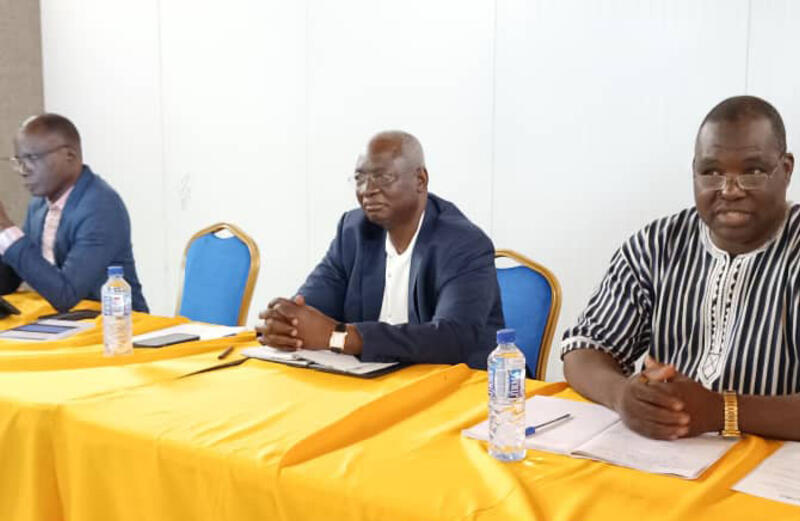Workshop on Genome Editing Regulation and GM Variety Registration Procedure in Burkina Faso

AUDA-NEPAD in partnership with Agence Nationale de Biosécurité (ANB) in Burkina Faso held a workshop on the registration of GM varieties and genome editing regulation, from 11 – 15 October 2022 in Loumbila, Burkina Faso. A dozen of experts from ANB and other key national institutions took part in this meeting.
The workshop aimed to develop regulatory instruments that would help improve the regulation of products derived from gene editing technologies as well as the mechanism for GM crop variety registration.
In his opening remarks, Dr. Oumar Traoré, Director General of ANB and Chair of the meeting, welcomed participants and stated that “the two aspects of the topic of the meeting are very important and will help provide Burkina Faso with new development tools. There are areas to be urgently clarified in the regulation of emerging technologies such as genome editing”.
Dr. Jeremy Ouedraogo, Head of ABNE and IVM programmes also welcomed participants on behalf of the AUDA-NEPAD CEO. He highlighted the importance of the meeting and said that “Burkina Faso can be proud of the results achieved so far in terms of technology development but the county must keep strengthening these results in particular in new areas such as emerging technologies.” He reaffirmed AUDA-NEPAD’s availability to continue to provide technical support as required by the country.
Unlike DNA recombinant biotechnology, genome editing is a more affordable and more precise tool that can help speed up the crop improvement cycle in order to adequately address critical agricultural challenges including droughts, poor soils, pest attacks, the poor nutritional value of commodities, etc. During the meeting, presentations and discussions allowed participants have a common understanding of the implications of gene editing regulation as well as the GM variety registration procedure.
In terms of outcomes, participants developed three (3) draft instruments that are of critical importance for streamlining the regulatory practices in the country. First is a draft decision that clarifies that an approved GM event can be transferred into another variety of the same crop species without a need for a new risk assessment dossier. Second is a guidance document that helps separate biosafety approval processes from crop variety registration mechanisms, as it is of international best practices. The third is a draft guidance paper for national regulators to help them decide if a gene-edited crop product will be regulated as a GMO or as a conventional product. This also perfectly aligns with existing best practices.
This fruitful meeting shows once more how the support from AUDA-NEPAD helps African countries like Burkina Faso to continuously strengthen their regulatory systems as required to safely embrace emerging and innovative technologies for development.



